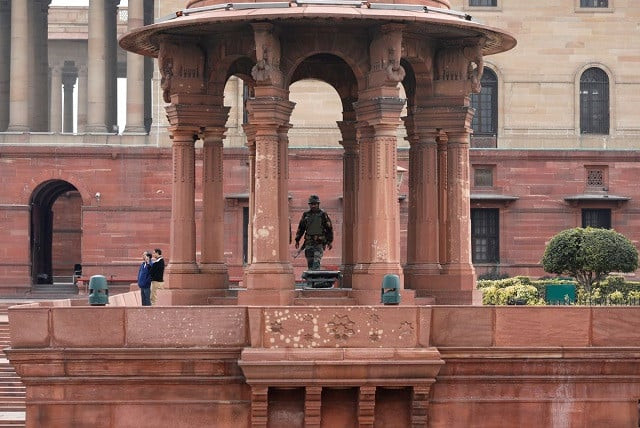India police charge 30 soldiers for killing six tribal labourers
Police chief says army officials resorted to 'disproportionate firing' during the 'anti-insurgency' operation

Police in India's northeastern state of Nagaland said 30 army soldiers were charged for killing six tribal labourers mistaken for militants during an anti-insurgency operation last year.
"Investigations revealed that the operation team had not followed the standard operating procedure and the rules of engagement," Nagaland police chief TJ Longkumer told reporters in the capital city Dimapur, adding that army officials had resorted to "disproportionate firing."
The police probe was launched after 13 members of the region's predominantly Konyak tribe and one security trooper were killed in December last year after defence forces stationed in the border state mistook the group of labourers for militants entering from Myanmar and opened fire.
Six coal miners returning from work were killed at Oting in Nagaland's Mon district. Seven others were gunned down when villagers, angry after discovering the bullet-riddled bodies of the labourers on an army truck had clashed with the soldiers.
One security personnel was also killed in the clashes.
"The sanction for prosecution is still awaited," Longkumer said, adding that a chargesheet had been filed to prosecute the 30 accused army personnel.
Also read: False-flag operations as India’s policy tool
A spokesperson for the Indian army was not immediately available for comment. A defence ministry official in New Delhi said the case has been placed before Indian courts for final order.
Thousands of army officials are posted in the country's northeast, home to a complex web of tribal groups, many of which have launched insurgency and separatist activities accusing New Delhi of plundering resources and doing little to improve their lives.
Soon after the killings, protests intensified over the Armed Forces Powers Act (AFSPA) that gives the armed forces sweeping powers to search and arrest, and to open fire if they deem it necessary in "disturbed areas".
The Act is still in force in Mon.
The notification of "disturbed areas" under AFSPA has been in force in several parts of seven northeastern states.
Starting in 2015, the federal government removed AFSPA entirely from the states of Tripura and Meghalaya, and partially from Arunachal Pradesh, Assam, Nagaland and Manipur.



















COMMENTS
Comments are moderated and generally will be posted if they are on-topic and not abusive.
For more information, please see our Comments FAQ